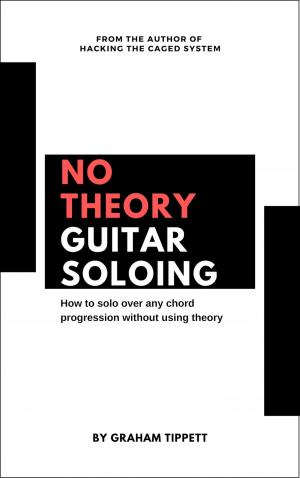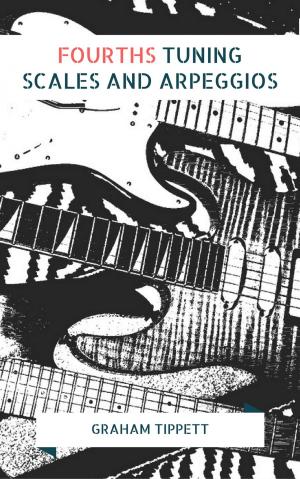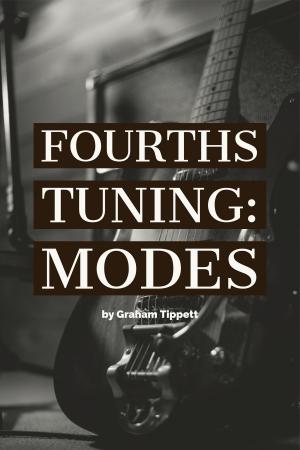Unlock The Guitar imprint: 6 books
by Graham Tippett
Language: English
Release Date: November 24, 2018
Language: English
Release Date: November 24, 2018
I was watching a YouTube video a while back where Lee Anderton (of Anderton’s fame) gets a guitar lesson from Ariel Posen. Ariel tries his best to teach him a few things in a very thorough and well-meaning way, but about half-way through Lee says something along the lines of, ‘Just teach me the...
Fourths Tuning Chords and Inversions
Chords and Inversions
Language: English
Release Date: September 3, 2017
Tune your B and E strings up to C and F respectively and you're in all fourths tuning. The first time I did this it was truly a revelation to me to have a symmetrical fretboard and get rid of that major third 'bump' from the G to B string in standard tuning. Everything suddenly became far more manageable...
Hacking the CAGED System
Book 1
Language: English
Release Date: January 4, 2019
The Hacking the CAGED System series was inspired by my own,and other guitarist’s frustrations with the infamous CAGED System for learning guitar.
It all started back in Music College in the early 2000s, at the ACM in Guildford (UK) to be precise, where we were handed, by none other than Guthrie...
by Graham Tippett
Language: English
Release Date: September 11, 2017
Language: English
Release Date: September 11, 2017
Following on from, ‘Fourths Tuning – Chords and Inversions’, I wanted to share a number of ways to see scales and arpeggios in fourths tuning that really take advantage of having a fretboard with a symmetrical layout.
This book is divided into three sections. In the first, we look at...
Fourths Tuning
Modes
Language: English
Release Date: May 15, 2019
There’s a beautiful symmetry about modes in fourths tuning (E, A, D, G, C, F or any variation thereof) that’s well-worth exploring, which is why I’ve dedicated an entire book to it. With that B-string bump out of the way, we’re free to explore modes both as scales in their own right and as...
by Graham Tippett
Language: English
Release Date: May 28, 2018
Language: English
Release Date: May 28, 2018
A lot of students ask me how they can take their improvisation skills to the next level and move beyond pentatonic scales and into modes and arpeggios. My response is to tell them not to abandon pentatonic scales in favor of modes and other soloing devices, but to use them as a springboard and a solid...





